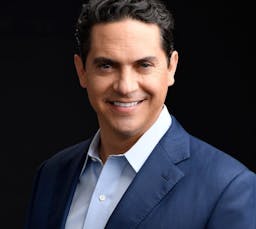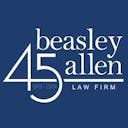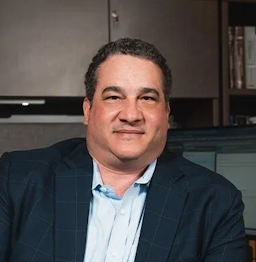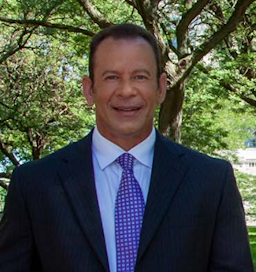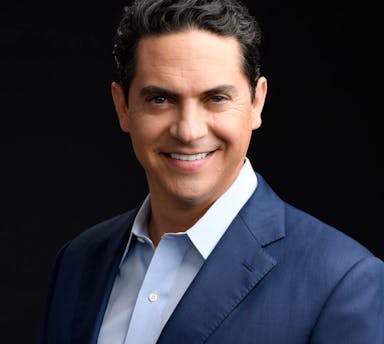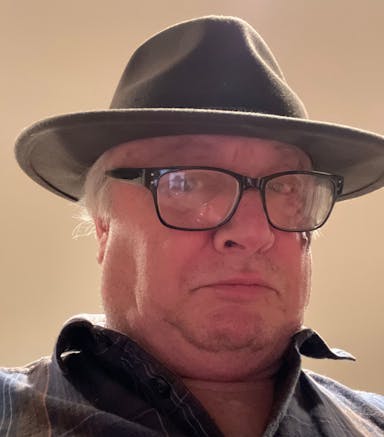Working Up A Civil Rights Case Before Trial
A.Considerations In Deciding Whether To Take A Civil Rights Case
- The Basic Facts
- Injuries/Damages
- Who Are The Plaintiff(s)
- Who Is The Decedent
- Who Are The Defendants
- Is There A Related Criminal Case
- Are There Witnesses
- Newspaper Articles
- Audio
- Video
- District Attorney Review
- Assessing The Negative Evidence
- Surviving MSJ
- Getting Around Qualified Immunity
- Assessing The Clients’ Expectations
B.Dealing With The Related Criminal Case
- Charges
- Copy Of File
- Discovery – Using The Criminal Case To Get Early Discovery
- The Plea – Possible Negative Implications
- Heck v Humphrey – Is The Case Barred by The Criminal Conviction
- Claim Requirement
- Statute Of Limitations
- Tolling Of Statute
- Timing Of The Filing
- Staying The Case
- Pleading The Fifth
- Don’t Let The Criminal Conviction Preclude The Civil Action
C.What To Do Before Filing The Lawsuit
- Getting Documents
- Medical Records
- Photographs
- Autopsy Report
- Securing Witnesses
- Family Documents
- Researching The Case
- Getting All The Plaintiffs
- Conflict Of Interest Waivers
- Establishing Liability
- Researching The Law
- Building Damages
D.Filing The Complaint
- State Court vs Federal Court
- Claims For Relief – What Claims Can Be Brought Under Federal And State Law
- Identifying The Plaintiffs
- Identifying The Defendants
- Requesting The Appropriate Damages
- Sufficient Factual Allegations
- Request For Jury Trial
- Dealing With Demurrers And Motions To Dismiss
- Filing Amended Complaints
E.Getting The Documents
- Public Records Request
- District Attorney Review
- Newspaper Articles
- Agency Review
- Related Criminal Case
- Disclosures
- Requests For Production Of Documents
- Audio
- Video
- Officer Statements
- Internal Affairs Review
- Protective Orders
- Forensic Evidence
F.Taking Effective Depositions
- Style Of Questioning
- Police Officers
- Witnesses
- Paramedics
- Treating Physicians
- Medical Examiner
- Detectives
- 30(B)(6) Depositions
- Persons Most Knowledgeable/ Persons Most Qualified Depositions
- Monell Depositions
- Defendant Depositions
- Expert Depositions
- Plaintiffs’ Depositions
G.Framing The Case
- Focusing The Jury On Important Issues
- Focusing The Jury On Facts You Can Prevail On
- The Issue Is
- The Issue Is Not
- Using Voir Dire – To Set The Standards
- Using Opening Statement – To Set The Standards
- Using Cross-Examination – To Set The Standards
- Using Experts To Frame The Case/Set The Standard
- Jury Instruction
- Verdict Form
- POST Standards
- Training
- Policies
- Deposition Testimony
H.Setting The Standard(s)
- What Is Excessive Force
- Standards Re Deadly Force
- Standards Re Less Lethal Force
- Using POST Standards
- Using Policy Language
- Using Training Materials
- Using Officer Testimony
- Using Expert Testimony
- Using Jury Instructions
- Standards of Different Types of Force
- Carotid Restraint
- Taser
- Pepper Spray
- Police Batons
- Bean Bag Shot Gun
- K-9
- 40 Mm Rounds
- Restraint / Positional Asphyxia
- Standards Re Arrest
- Standards Re Detention
- Standards Re Medical Care
- Prone Restraint
I.Using Experts
- Police Practice Experts
- Trajectory Experts
- Forensic Experts
- Medical Experts
- Damages Experts
- 30(b)(6) Experts
J.Opposing Summary Judgment
- Citing Cases Similar To Yours
- Distinguishing Unfavorable Cases
- Developing Disputed Issues Of Material Fact
- Using Deposition Testimony
- Using Statements Of Defendants
- Using Declarations (Witnesses – Experts)
- Using Photographs
- Framing The Case – In The MSJ Opposition
- Setting The Standard – In The MSJ Opposition
K.Dealing With Qualified Immunity
- Creating Material Factual Disputes
- Showing Law Clearly Established
- Citing Similar Cases
- Distinguishing Unfavorable Cases
- Falls Within The Obvious Argument
- Assume All Plaintiffs’ Facts – Take All Reasonable Inferences
- Not Applicable To State Claims
- Using Officer Training
- Expert Declarations
- Policies – Using The Policies Of The Defendants
- POST Training (Peace Officer Standards And Training)
- Not Applicable To Monell
- Using Deposition Testimony To Show Law Clearly Established
- Using Deposition Testimony Re Training – Hypothetical Questions
TLU Live HB Agenda
Track 1
Breakfast
Hosted by
- 9:00a




 Will Sykes · Dorothy Clay Sims · Sach OliverDepositions
Will Sykes · Dorothy Clay Sims · Sach OliverDepositions Coffee & Snacks
Hosted by
- 10:15a




 Will Sykes · Dorothy Clay Sims · Sach OliverDepositions
Will Sykes · Dorothy Clay Sims · Sach OliverDepositions Coffee & Snacks
Hosted by
- 11:30a




 Will Sykes · Dorothy Clay Sims · Sach OliverDepositions
Will Sykes · Dorothy Clay Sims · Sach OliverDepositions Lunch
Sponsored by
- 2:00p


 Christian Augustin · Sean Claggett Intake and Pre-Lit Workup
Christian Augustin · Sean Claggett Intake and Pre-Lit Workup Coffee & Snacks
Hosted by
- 3:15p





 Shannon Wise · Jennifer Morales · Brian BlankenshipManaging the Case and Putting Constant Pressure on the Defense
Shannon Wise · Jennifer Morales · Brian BlankenshipManaging the Case and Putting Constant Pressure on the Defense Coffee & Snacks
Hosted by
- 4:30p





 Shannon Wise · Jennifer Morales · Brian BlankenshipManaging the Case and Putting Constant Pressure on the Defense
Shannon Wise · Jennifer Morales · Brian BlankenshipManaging the Case and Putting Constant Pressure on the Defense
Track 2
Breakfast
Hosted by
- 9:00a


 Joseph Fried · Dan Ambrose High Performance Presentations
Joseph Fried · Dan Ambrose High Performance Presentations Coffee & Snacks
Hosted by
- 10:15a


 Haytham Faraj · Ted Wacker Overcoming Significant Hurdles on the way to $21.2 Million Verdict
Haytham Faraj · Ted Wacker Overcoming Significant Hurdles on the way to $21.2 Million Verdict Coffee & Snacks
Hosted by
- 11:30a

 Joseph FriedJoe Fried’s Top Tips for Winning Trucking Case
Joseph FriedJoe Fried’s Top Tips for Winning Trucking Case Lunch
Sponsored by
- 2:00p

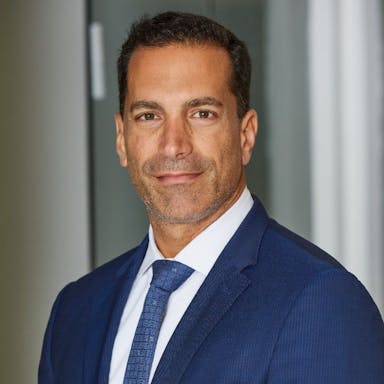 Sagi ShakedMaximizing Your TBI case
Sagi ShakedMaximizing Your TBI case Coffee & Snacks
Hosted by
- 3:15p

 Kurt ZanerHow fun, persuasive writing can lead to eight figure verdicts and settlements
Kurt ZanerHow fun, persuasive writing can lead to eight figure verdicts and settlements Coffee & Snacks
Hosted by
- 4:30p


 Khail Parris · Alex Wheeler Picking a $58,000,000 jury: Using fat words and skinny words for cause
Khail Parris · Alex Wheeler Picking a $58,000,000 jury: Using fat words and skinny words for cause
Track 3
Breakfast
Hosted by
- 9:00a

 Christian MorrisCross-Examination of Defense Medical Expert
Christian MorrisCross-Examination of Defense Medical Expert Coffee & Snacks
Hosted by
- 10:15a


 Bruce Broillet · Molly McKibben The Erin Andrews Invasion of Privacy Case: How the $55 Million non-economic Verdict was won
Bruce Broillet · Molly McKibben The Erin Andrews Invasion of Privacy Case: How the $55 Million non-economic Verdict was won Coffee & Snacks
Hosted by
- 11:30a


 Bruce Broillet · Molly McKibben The Erin Andrews Invasion of Privacy Case: How the $55 Million non-economic Verdict was won
Bruce Broillet · Molly McKibben The Erin Andrews Invasion of Privacy Case: How the $55 Million non-economic Verdict was won Lunch
Sponsored by
- 2:00p


 Bruce Broillet · Molly McKibben The Erin Andrews Invasion of Privacy Case: How the $55 Million non-economic Verdict was won
Bruce Broillet · Molly McKibben The Erin Andrews Invasion of Privacy Case: How the $55 Million non-economic Verdict was won Coffee & Snacks
Hosted by
- 3:15p

 Przemek LubeckiThe Mental Game for Trial - Performing Under Pressure
Przemek LubeckiThe Mental Game for Trial - Performing Under Pressure Coffee & Snacks
Hosted by
- 4:30p

 Alicia CampbellHow to Get Your First 8 Figure Verdict
Alicia CampbellHow to Get Your First 8 Figure Verdict
Track 4
Breakfast
Hosted by
- 9:00a



 Phillip Miller · Justin Kahn · Edward CiarimboliDesigning Exhibits - Design Ideas and Techniques
Phillip Miller · Justin Kahn · Edward CiarimboliDesigning Exhibits - Design Ideas and Techniques Coffee & Snacks
Hosted by
- 10:15a



 Phillip Miller · Justin Kahn · Edward CiarimboliDesigning Exhibits - Design Ideas and Techniques
Phillip Miller · Justin Kahn · Edward CiarimboliDesigning Exhibits - Design Ideas and Techniques Coffee & Snacks
Hosted by
- 11:30a



 Phillip Miller · Justin Kahn · Edward CiarimboliDesigning Exhibits - Design Ideas and Techniques
Phillip Miller · Justin Kahn · Edward CiarimboliDesigning Exhibits - Design Ideas and Techniques Lunch
Sponsored by
- 2:00p





 Lloyd Bell · Monte Tynes · Bob ByrneTry your FRKN Case
Lloyd Bell · Monte Tynes · Bob ByrneTry your FRKN Case Coffee & Snacks
Hosted by
- 3:15p

 John RomanoNavigating The Minefields Of Valuing Cases
John RomanoNavigating The Minefields Of Valuing Cases Coffee & Snacks
Hosted by
- 4:30p

 Dirk VandeverDirk's Trial Manifesto
Dirk VandeverDirk's Trial Manifesto
Party Sponsor
5:30pm-8:30pm
Barbie Pink & White Party
Hosted by
































